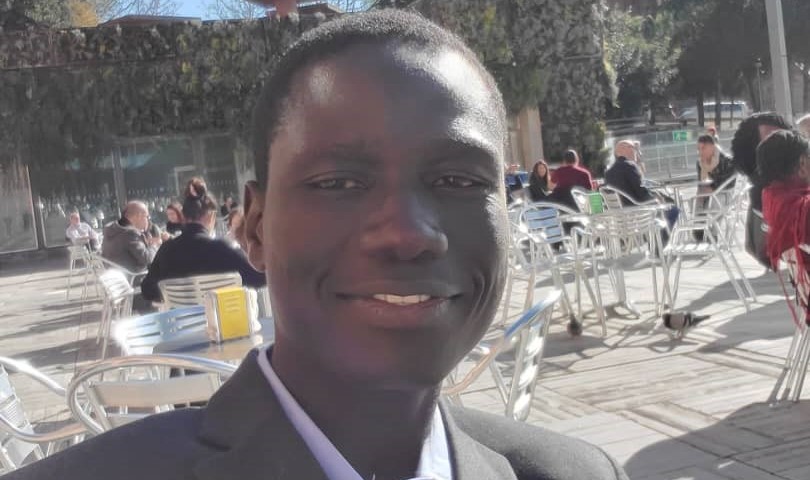In the intricate tapestry of nation-building, few events resonate with profound significance as a generational shift in political leadership.
President Salva Kiir’s recent decision symbolizes not merely a political recalibration, but a transformative passage that aligns with the biological principle in which older cells relinquish their roles, ensuring rejuvenation and continuity of the functions of the body. This decision marks a turn toward entrusting South Sudan into the hands of its vibrant youth.
President Kiir’s decision has not come out of thin air. Rather, it emerges from a time spent in service and sacrifice. His youthful years were dedicated to the struggle for liberating South Sudan, alongside countless other freedom fighters through resilience and determination. The President’s formative years, marked by unwavering commitment, bravery, and leadership, paved the path towards a free and sovereign South Sudan. These experiences not only shaped his worldview, but also deeply informed his vision for a nation that must continuously evolve and adapt.
For many years, South Sudanese youth have lived with the fear of a generational skip. This concern was deeply rooted in the extended tenure of the older leaders who tightly held onto critical positions in both party and government. The youth worried that by the time to lead arrived, critical lessons, values, and experiences would have been lost, hindering effective governance and continuity. With President Kiir’s recent transformative decision, this anxiety has been addressed, dispelling fears and ensuring a seamless transition of knowledge, mentorship, and leadership.
For the young people, this generational shift carries immense importance. Primarily, it underscores formal recognition of their capability, readiness, and indispensable role in advancing the nation’s aspirations. The youth across the urban and the rural landscapes now have an opportunity to translate dreams into realities. By stepping forward, the youth can reshape the socio-political and economic fabric of South Sudan, becoming architects of their destiny.
Yet, this transition to youthful stewardship inherently carries weighty responsibilities. The youth must internalize the essence of this pivotal moment, not as passive observers, but as proactive custodians committed to fostering peace, stability, and inclusive growth. To fulfill this, it is crucial that the youth engage positively, particularly by combating joblessness and economic stagnation. Entrepreneurship, education, and skills development must be prioritized, to build sustainable livelihoods and meaningful careers.
Moreover, it is vital for the youth to reject involvement in senseless armed conflicts, where countless young lives and dreams are extinguished before they fully blossom. The loss of youthful potential in these conflicts represents a national crisis. Youth leaders must vigorously advocate peaceful coexistence and dialogue, to address grievances. By choosing peace and constructive engagement, the youth safeguard not only their own lives but also the future stability and prosperity of their nation.
Significantly, positive youth engagement must extend to the rural communities. Youth in urban areas have a responsibility to engage with their rural counterparts, while discouraging participation in intercommunal conflicts and other criminal activities. Such engagement fosters mutual understanding and solidarity, essential ingredients for national cohesion and unity.
President Kiir’s leadership in facilitating this generational transition deserves unequivocal recognition and appreciation. His actions to create space for youth leadership reflect his profound understanding of the importance of continuity and renewal in governance. Through his mentorship and guidance, numerous young leaders have been inspired and equipped with the confidence, values, and skills to steer the nation responsibly. His vision of empowering young leaders underscores a commitment to sustainable nation-building and lasting peace.
Furthermore, President Kiir’s action for generational change is rooted in his belief in the youth. By entrusting the youth with this responsibility, he has demonstrated his confidence in their capabilities and vision. It is imperative that young people reciprocate by engaging in nation-building, demonstrating leadership, and upholding the principles of integrity, unity, and patriotism.
To achieve these goals, unity and collaboration among youth are indispensable. Young South Sudanese must distance themselves from tribal, sectional grievances, and speculative political narratives that impede progress. The message is unequivocal: the youth must unite their diverse strengths and resolutely address the challenges confronting their nation.
The President’s initiative is more than a symbolic gesture; it embodies a vision designed to stimulate growth and stability. By mentoring and nurturing young leaders, President Kiir has set a precedence for future leadership, ensuring that governance remains dynamic, inclusive, and responsive to the needs of the nation. His foresight demonstrates not only, wisdom but also a commitment to the future of South Sudan.
This generational shift should not be perceived as mere rhetoric but as a transformative mandate. South Sudan’s youth now bear the honor and responsibility of rewriting their narrative, embracing optimism grounded in patriotism and responsible citizenship. As the older leadership steps aside, the privilege and burden of stewardship rest squarely upon youthful shoulders, strong enough to carry expectations, resilience, and innovative thinking.
President Kiir’s deliberate generational shift transcends mere political maneuvering. It represents a profound and timely alignment with the natural order, and deliberate transition to rejuvenate national aspirations. Youth across South Sudan must wholeheartedly embrace this historic moment, discard divisive speculations, and lead with determination, vision, and unity. The goal remains clear and shared: forging a united, peaceful, and prosperous South Sudan that future generations will proudly inherit.
Ramzy Muorwel Matueny, Ph.D, is a specialist physician, researcher and a fellow at Faculty of Medicine, Benha University, Egypt.
The views expressed in ‘opinion’ articles published by Radio Tamazuj are solely those of the writer. The veracity of any claims made is the responsibility of the author, not Radio Tamazuj.




